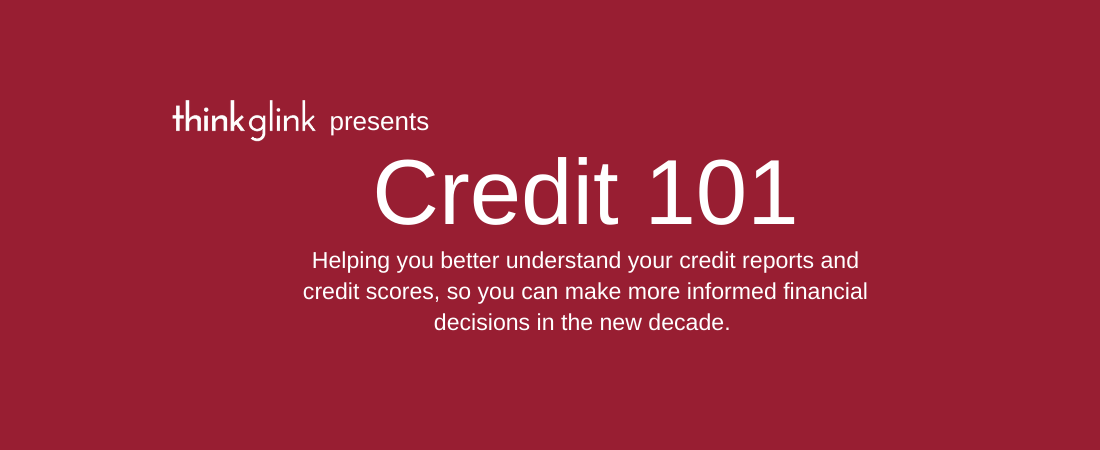
As we move into 2020, credit continues to be a buzzword for consumers, but many people are unsure what part credit plays in their personal finances. In a new 5-part series, Credit 101, Ilyce Glink, an award-winning personal finance columnist and CEO of the financial wellness platform Best Money Moves, details important information you need to know about your credit reports and scores. The series is sponsored by Equifax.
Recently, Ilyce joined Ji Suk Yi, host of WGN’s Wintrust Business Lunch to discuss savings in America the importance of understanding your credit. Listen here and continue reading for a transcript of their conversation. And be sure to check out our Credit 101 series, here.
Ji Suk Yi [0:00]
Ji here with The Wintrust Business Lunch, here for you now is Ilyce Glink. She’s a real estate and personal finance expert. Her website is thinkglink.com, and she is the CEO of Best Money Moves. Hi, Ilyce.
Ilyce Glink [0:13]
Hey, Ji, nice to be here.
Ji Suk Yi [0:14]
I hear that today is very important, it is the beginning of America Saves Week.
Ilyce Glink [0:19]
Right, this is one of those things that you would almost think it’s a Hallmark holiday. But instead, the Consumer Federation of America came up with this a number of years ago, to focus on the lack of savings that Americans do, we really don’t save as much as we should. And so they started this America Saves Week, you can go to Americasaves.org and see the more than 1200 companies that have partnered with the Consumer Federation of America to do America Saves Week including Best Money Moves.
Ji Suk Yi [0:49]
Saving in America is a real problem in the sense that not enough people are doing it.
Ilyce Glink [0:54]
They really aren’t. We would love to see people save a little bit more. You know, when you’ve got more than half of them. Americans living paycheck to paycheck, you gotta start somewhere. Build an emergency fund put away some money for future college tuitions, hey, just, you know, get your bills paid on time.
Ji Suk Yi [1:12]
What are some easy ways we can save? Because it sounds easy…
Ilyce Glink [1:16]
It isn’t. And I get that, but one of the things you might want to do is literally not even let the cash hit your pocket, right? So almost every single employer in America has a way for you to divert a portion of your paycheck each month, whether it’s 25 or 50 bucks a month, right into a separate savings account. It’s a great place to start because of course, you’re not going to see it hit your pocket. And then also, if you’re not taking advantage of your 401k and any match, well, you’re just leaving money on the table.
Ji Suk Yi [1:53]
What about budgeting with cash and envelopes? Do you recommend that?
Ilyce Glink [1:57]
You know, I think that’s kind of messy. A lot of people do it. Money can go missing strangely, I would rather see you figure out a different way to do it. But if you need to feel the tangible cash, and I get that, try it.
Ji Suk Yi [2:13]
Should you be thinking big or thinking small when you’re saving?
Ilyce Glink [2:17]
Well, I want you to set up some goals that are short-term and realistic and long-term and require some dedication to get there. And I don’t mind if you reward yourself occasionally. So that you can actually, you know, feel good about what you’re doing and feel like you’re achieving goals because behavioral economics shows us that when we feel like we’re achieving our goals, we’re much more likely to stick to them. And with savings, that’s true as well. But what I don’t want you to do is save, let’s say $600 a year and spend $1,200 to reward yourself. It defeats the purpose.
Ji Suk Yi [2:50]
Do you recommend any apps that help you save, like saving the leftover change, like rounding up?
Ilyce Glink [2:56]
Right, so those apps that you like you go to Starbucks and then you save the change? Like, please don’t do that, because you’re spending four, or five or $6 to save 32 cents. I would rather you just save the $6, and the 32 cents comes along as part and parcel of it. So I think those are more gimmicky than anything else. But hey, if that’s what it takes, sure, go ahead and do it. I would much rather see you, you know, take 25 bucks a week out of your paycheck, and stick that in an account somewhere that it’s really hard to touch.
Ji Suk Yi [3:25]
How much money should you have in your emergency fund?
Ilyce Glink [3:29]
Well, you really ought to have somewhere between three and six months of the expenses that you can’t do without, your rent or mortgage. If you have a car payment, your health insurance, right, those are the things that you’ve got to be able to tap fast for cash. And usually, it’s three to six months worth because even in a hot economy, like we have now where there are lots of jobs available, so you could get something, it might still take a month or two to get it.
Ji Suk Yi [3:55]
I saw this recent story that so many Americans are living paycheck to paycheck. And this included folks that made over $100,000.
Ilyce Glink [4:04]
Oh yeah, at least 10 percent of all people who earn six figures a year are living paycheck to paycheck. And, you know, this is gonna sound crazy. But in 19 – I think it was ’90 or ’91, so like 30 years ago, almost, I wrote a cover story for Chicago Magazine called something like feeling poor on $100,000 a year, and that was 30 years ago. So now 30 years later, we’ve had inflation and it’s two working parents, and they’ve got all sorts of extra expenses that have come into play. And people can easily find themselves broke even though they’re earning what sounds to be a fabulous amount of money.
Ji Suk Yi [4:43]
So you said you read that article decades ago?
Ilyce Glink [4:45]
Decades. I know that just aged me on radio, something you never really want to do.
Ji Suk Yi [4:49]
You don’t look like that’s possible. But do you think it’s harder to save for our current generation than it was for our parents or grandparents?
Ilyce Glink [4:56]
The research is showing actually the Gen Z which is the new generation coming out of college right now they’re all like 21, 22, look to be better savers than the older millennials. And even younger millennials. I divide millennials, like so many people doing into kind of younger and older sects, but the Gen Z look to be very focused on saving and that has to do with what happened 10 years ago in the Great Recession, and they saw their families so broke and really needing to dip into, you know, cash out 401ks and retirement all that. I mean, we’re going to start seeing Baby Boomers who are in real trouble when it comes to retiring.
Ji Suk Yi [5:33]
Ilyce on your website, you started a Credit 101 series and you’re in your third week.
Ilyce Glink [5:39]
We are! Thinkglink.com, we’ve got a Credit 101 series sponsored by Equifax. We’re answering common questions that people have about credit.
You would think that people really understand this but people don’t and even people who I thought understood it-a gentleman in his 60s, very well-to-do and you know, the family only pays their bills every other month. I’m like, well, what’s that doing your credit? He’s like, I don’t know and he pulls up his credit score, and he’s like, I don’t know is, is this a good number and it was like in the low seven hundreds. I’m like, well, it could be better. But he, they, they have plenty of money, they just didn’t think about the fact that when you don’t pay your bills on time, every single month, there’s a little bit of a ding that goes into it. And so that’s what had been happening to him.
This week on our credit series, which you can find the whole series at thinkglink.com. We talk about what goes into, you know, calculating that credit score, and I think a lot of people don’t realize that it’s not just your payment history, but the total amount that you owe versus your available credit, types of accounts that you have, the total number of accounts and the length of your credit history. We explain all of that online.
Ji Suk Yi [6:51]
And I was surprised to learn to that there are different types of credit scores, different companies scoring you.
Ilyce Glink [6:56]
Yes, we all have multiple credit scores. So the idea that we just have this one number somewhere isn’t really true. If you look on your credit card account, it might be one score. Go get a loan from a mortgage lender, it’ll be a different score. If you look on myFICO, it might be a third score. Equifax has a different one. They all do. And so this idea- and they all collect different information. So the reason the scores are different is the information is different. The way they calculate is a little different. We go deep into all of that at the thinkglink.com Credit 101 series.
Ji Suk Yi [7:28]
Thinkglink.com
Ilyce Glink [7:29]
Thanks, Ji.
Ji Suk Yi [7:30]
A lot more coming up on WGN Radio.







Leave A Comment